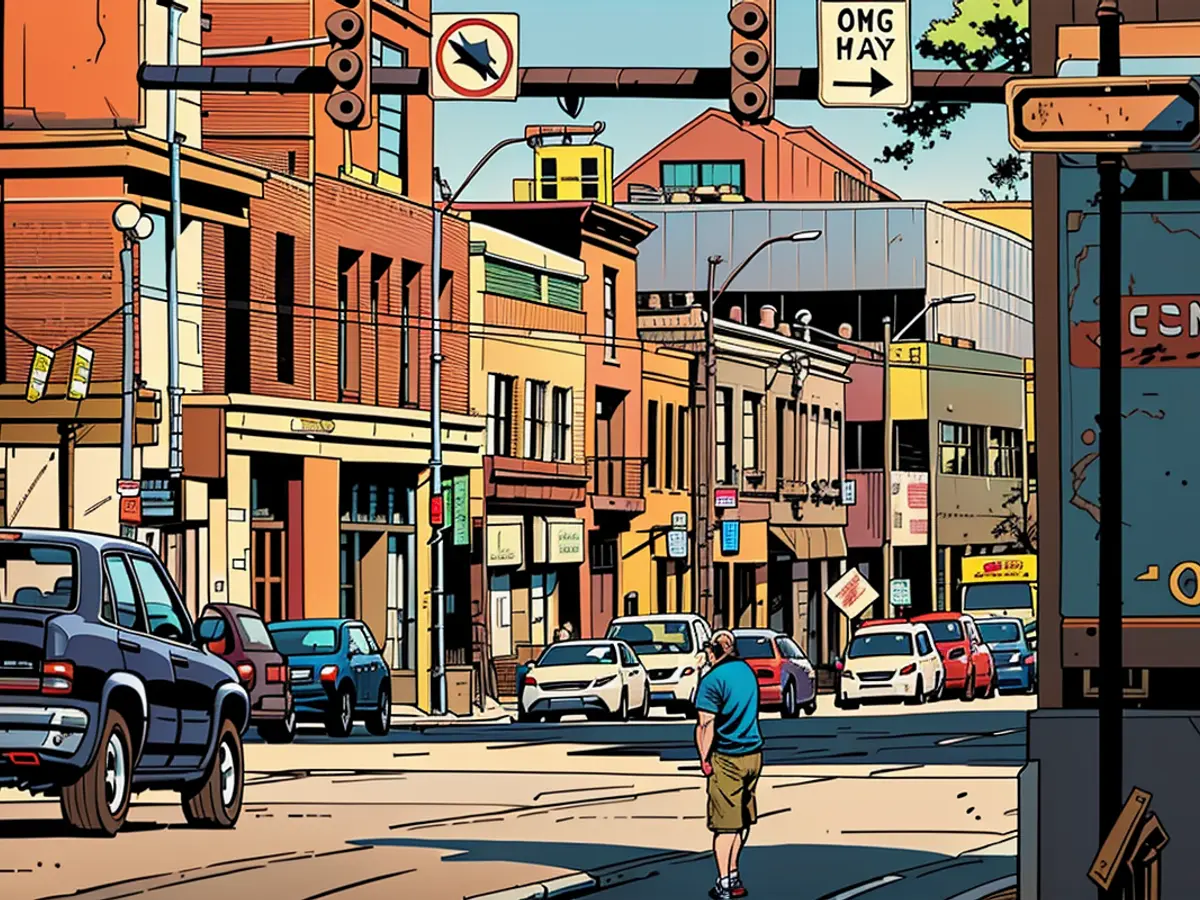The Collapse of Manufacturing in the Rust Belt Wreaked Havoc on Their Local Communities. Two Individuals Share Their Preferred Presidential Candidate.
It's evident in every word he speaks, a feeling deeply rooted in his upbringing in these very streets.
"Our region has been shouting out, 'Look at us! We're evolving, we're progressing! Check out all the changes we're making,'" he states. Yet, it wasn't until we became a battleground county that the world truly paid attention.
Politicians and their campaigns are now certainly listening, there's no denying that.
Just as they've latched onto a Pennsylvania county over 350 miles away, where we sat at Phil Kerner's kitchen table, surrounded by fresh pepperoni balls – a local Erie County delicacy, his wife informs us – a few days later.
As Kerner recalls, "Driving down that industrial corridor on 12th Street, it was filled with shops. Shops everywhere. It was wonderful."
So, what became of that street in Erie?
"It's not the same anymore," says the tool and die maker.
Two critical battleground counties in two crucial battleground states.
President Barack Obama easily won both in his bid for reelection in 2012.
Donald Trump narrowly claimed each in his mission to shatter the Democrats' so-called "blue wall" in 2016.
Joe Biden regained them four years later – by the slimmest of margins.
These closely-watched political indicators share a common economic history, marked by their transformation from major industrial powerhouses, their life force gradually drained by globalization.
It's the same story told by two families – the Colemans and the Kerners – with generational ties to these communities now under the political spotlight.
They share a strong affection for their hometowns and a deep-seated hope that they can regain some semblance of their former economic glory.
"Many of our family elders, now retired, are holding onto their properties, hoping to pass them down to future generations," Coleman explains.
Their individual stories, however, are as distinct as the communities that shaped them.
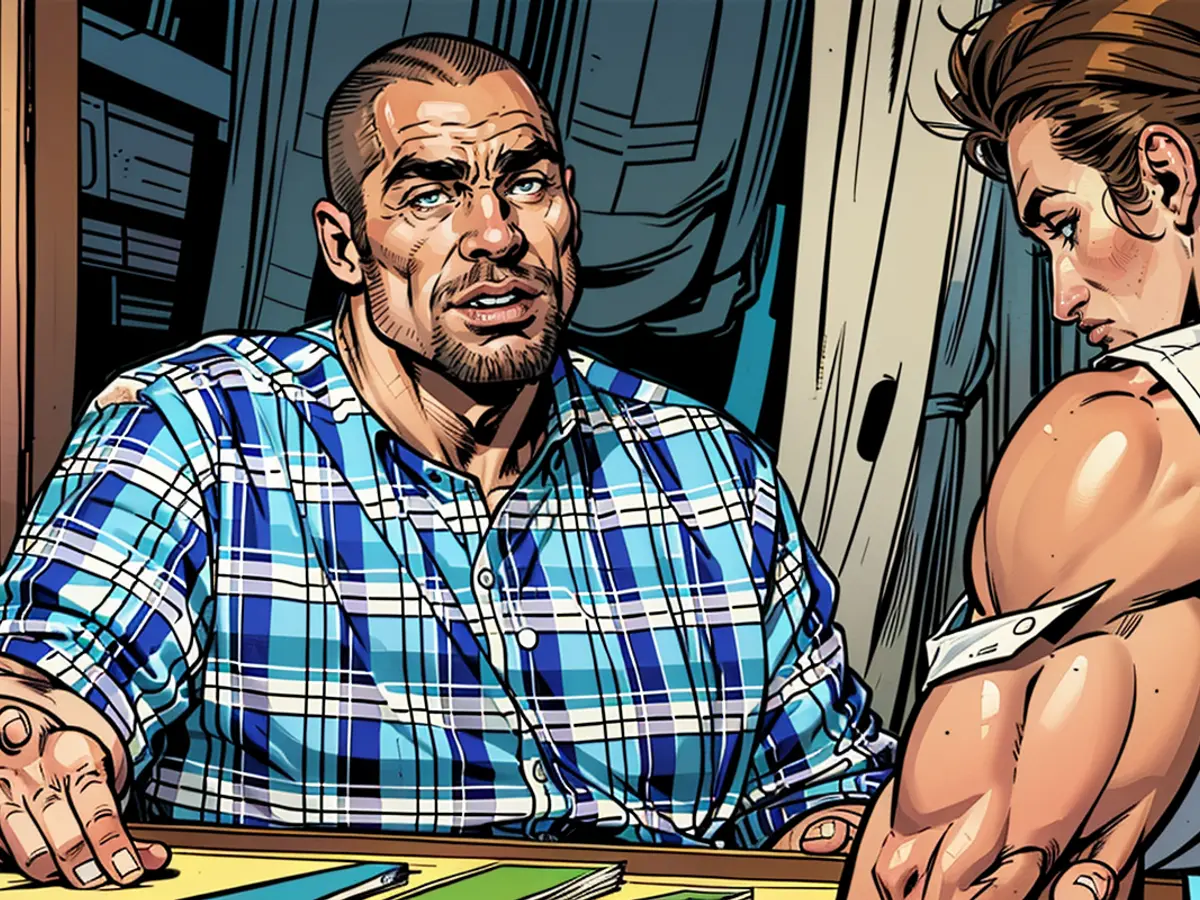
Their choices of presidential candidates this November are as disparate as the communities they come from. Their reasons and their reflections on their communities just weeks before the election offer a candid glance at the challenges and opportunities facing Trump and Vice President Kamala Harris.
A tale of resilience
The Coleman family embodies Saginaw's economic evolution since their arrival in Central Michigan, joining the exodus of other Black families during the manufacturing boom that spurred the Great Migration. The automotive industry was their primary employer – and with GM and the network of suppliers and support businesses surrounding the plant, the community was intimately connected to its operations.
"Over 80 to 90% of the adults in our church were full-time employees with GM," Coleman's father, a Church of God in Christ bishop, recalls of the congregation he inherited from his own father.
"Today, in our congregation, I have only one person employed full-time by the auto industry," Hurley Coleman Jr. clarifies.
Other industries have begun to establish roots in the area, offering new opportunities that once seemed elusive as broader-based manufacturing tied to major automakers faded in the region.
Advanced manufacturing across various industries, including significant investments in electric vehicle supply chains, and expansions of major hospitals and medical device companies, are underway.
"I'd like to tell our story as one of resilience and recovery. That we bounce back and look towards the future, and hopefully, inspire a new generation to love this region as we do," the younger Coleman says.
Coleman sat at his kitchen table, juggling feelings of hope for his community and his family, with the weight of his experiences in recent years.
The nonprofit he leads supports the community's most vulnerable residents.
"Sometimes, they come to us, and we're their last hope," Coleman says. "The lights are turned off. There's no food in the cupboards. Seniors have been stuck at home, with no one to help."
The brightest moments are the smiles he sees on their faces when his team steps in to offer assistance. Yet, the pressure of being the safety net in a community grappling with violence and poverty can be overwhelming.
"There are days when we have so many people who need help, so many problems, so many issues, so many emergencies and crises," Coleman admits.
A craftsman and a disappearing trade
Back in Erie, Phil Kerner spreads out the binder on his desk, brimming with sketches, time cards, and family history.

There's a copy of the 1920 census, listing his grandfather Edward as a toolmaker in this corner of northwestern Pennsylvania.
The story of Edward's three sons – two toolmakers and a machinist – illustrates how deeply ingrained their family was in the trade and the community at one time.
That's no longer true.
"My grandfather did this. My father did this. My uncles did it. My brothers did it. I did it. My kids don't," Kerner says, encapsulating the change perfectly.
His work can be meticulously detailed, ranging from the precise specifications required for designing a scheme to the art and technique needed to construct a plastic molding device.
Various household items, such as toys, storage containers, mechanical components, and other miscellaneous objects, are likely to incorporate the kind of craftsmanship Kerner specializes in.
After the devastating attacks on September 11, President George W. Bush famously made an appearance at Ground Zero, with a firefighter wearing a respirator mask around his neck. Kerner engineered and constructed the plastic mold for that mask.
However, Kerner can pinpoint the exact moment when his industry began to shift towards more affordable and quicker manufacturing overseas.
"I understood that my primary customer for a decade had basically abandoned many of us in Erie who had been working for them," Kerner mused.
Kerner remains passionate about his profession, to the point where he proactively dove into creating a YouTube channel called "The Tool and Die Guy." He currently boasts over 25,000 subscribers.
"They want someone like me – fun enough, I guess?" Kerner laughed. "I'm the toolmaker they always wish they had working next to them."
The videos, now numbering over 170 (including one recapping his interview with CNN), were not a desperate attempt to garner social media fame but rather an initiative driven by his dedication to the trade.
"I encountered a passion for this trade and the diminishing appreciation for the skill and craftsmanship required in it, similar to how manufacturing has been dwindling in regions like Erie across the country," Kerner explained.
The impact is much more profound than simply the closure of a factory and the loss of jobs. The entire community takes a hit.
"It's disheartening to see it as someone who has experienced the peak of manufacturing from the 50s up until the 90s," Kerner said.
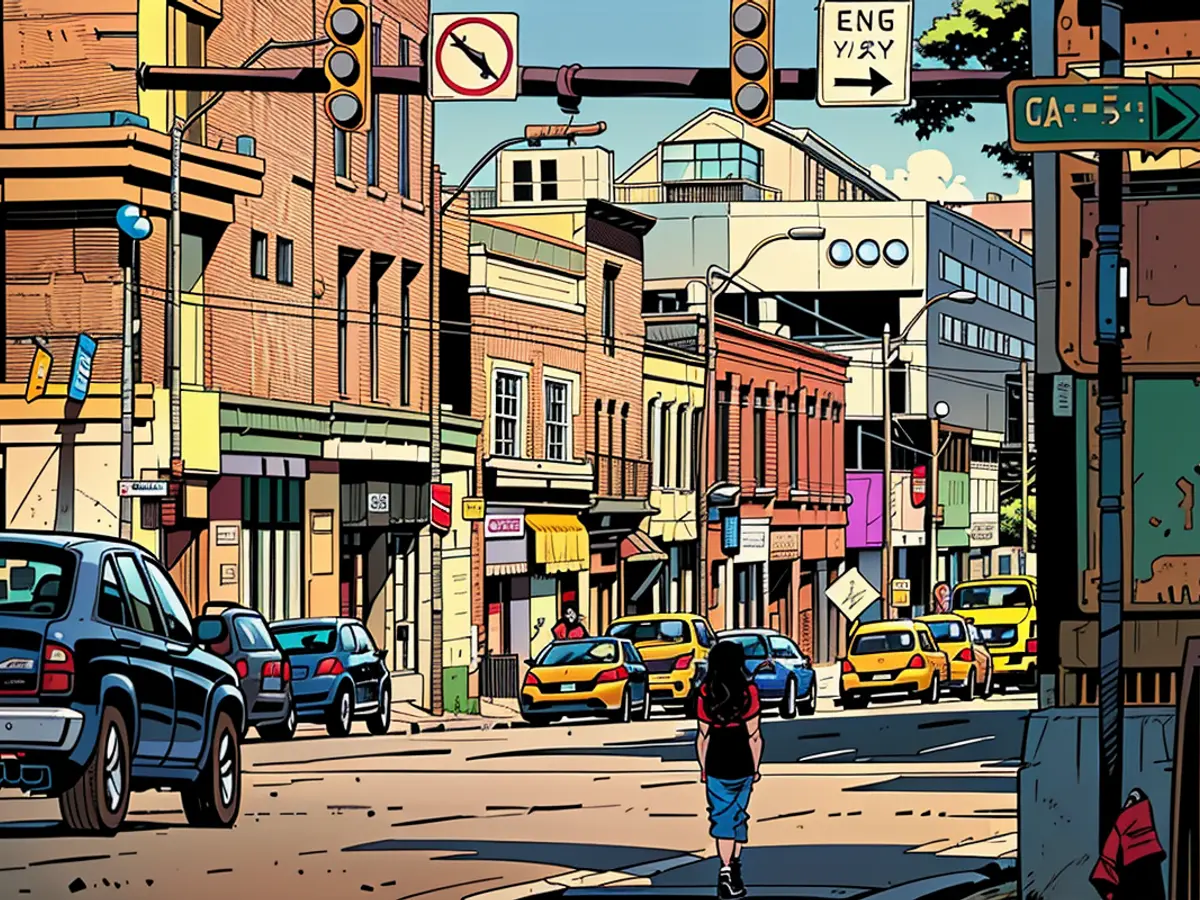
"I'm a little bit of a political junkie"
Kerner openly acknowledges being "a bit of a political junkie." He keeps an eye on the broader economic developments in the nation.
"I always tell people I'm not a Republican, I'm a realist. I think they're all terrible," he said.
Despite the positive macroeconomic figures, indicating an economy that has surpassed projections for several consecutive years, Kerner is wary of the impact on his household income.
"My salary isn't increasing," Kerner claimed. "I don't see my friends experiencing salary growth."
Applying similar logic to his political decision, Kerner said, "If you don't figure this out, you'll lose your house. We'll foreclose on you."
According to Kerner, approximately 95% of his colleagues support Trump.
"I believe the consensus in the business community is Trump is one of us or one of them because he's at least focused on it," Kerner said. "You might not like the way he accomplished it, but he's got business background."
What Kerner genuinely hopes for, he repeatedly emphasized, is something obscured from public view. Elevated and standardized apprenticeship programs that account for the significance of the trade – and the value it offers, which would lead to steady employment within the manufacturing sector.
In many ways, his YouTube videos have evolved to serve a deeper purpose for him.
"As long as the internet exists, someone will remember that the Kerner family was from Erie, Pennsylvania. That the tool and die profession was exceptionally skilled. That Phil Kerner taught us how to excel in it," he said.
"More optimistic with Harris"
Coleman's sentiments about the upcoming election can be summarized in one word.
"Nervous," he said. "I'm nervous about the future."
For all the optimism he conveys about Saginaw's future, the stark contrast in policy between the two candidates is not lost on him.
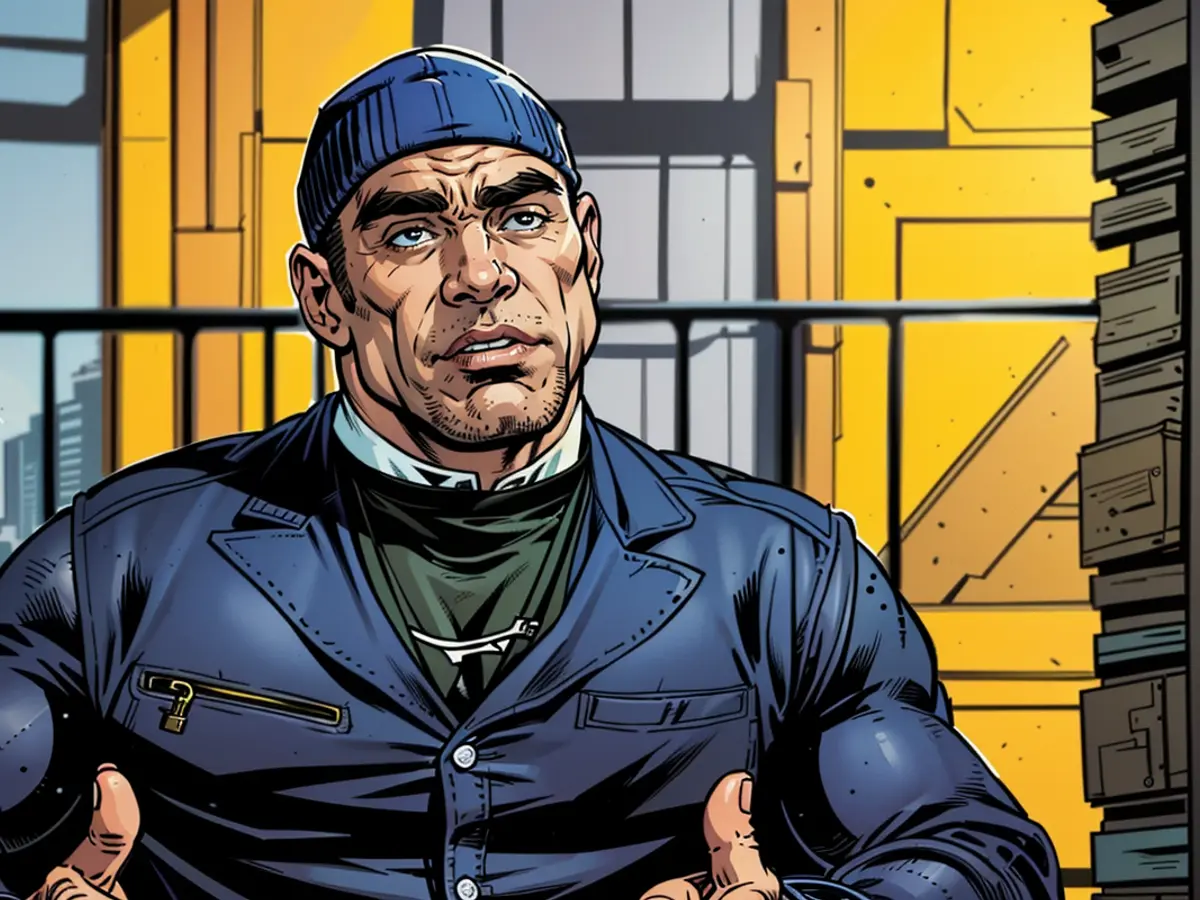
He sees Trump's fiscal proposals as directly putting federal resources allocated to his nonprofit organization at risk.
The idea that tax cuts and deregulation will trickle down to those at the bottom end of the economic spectrum is something he asserts never has materialized.
"They have no idea about the daily struggles that face someone living in poverty," Coleman argued. "People with money may encounter hardships that lead to losing their homes or experiencing the high cost of gas. But that doesn't correlate with someone living in poverty. It's just two separate worlds."
Coleman supported Biden's reelection and even spent time with him when he visited Saginaw during his campaign.
Now, he's backing Harris and saw the Democratic National Convention as an opportunity to highlight her strengths.
However, it's clear that Democrats have work to accomplish with this crucial demographic.
"Many Black men in our area are still undecided," Coleman said, frequently hearing concerns about border security and whether migrants are receiving federal aid that might otherwise benefit his community.
During the pandemic, the stimulus checks that Trump claimed credit for frequently pop up in discussions.
Coleman's father mentions that some individuals believe these financial aid packages might become a common occurrence once more.
Biden stepping out of the race and Harris' ascent, however, has ignited a fresh wave of excitement, according to Coleman's elderly father.
"Now, the dialogue isn't about how dreadful Biden was or how splendid Trump was, but what potential prospects arise with a Harris presidency," the bishop explains. "I believe there's been an uptick in opportunistic hope over the past few weeks."
While driving down Williams Street with the younger Coleman, right before the Saginaw River, it's impossible to ignore the line of unused grain silos that punctuate the skyline.
Initially a significant eye sore hanging over the city's commercial and artistic quarters, these silos were rebuilt a few years ago into an impressive 70,000-square-foot canvas for urban street artists.
For Coleman, the explosion of vibrant hues and chaotic forms symbolizes more than just an aesthetic remodeling project.
"The old, the outdated has undergone transformation and rebirth through its experience of this evolution," he muses, gazing at the mural. "And people will profit from others' creativity and desire for revolution. And I think that's what those silos represent. It's the future for this area."
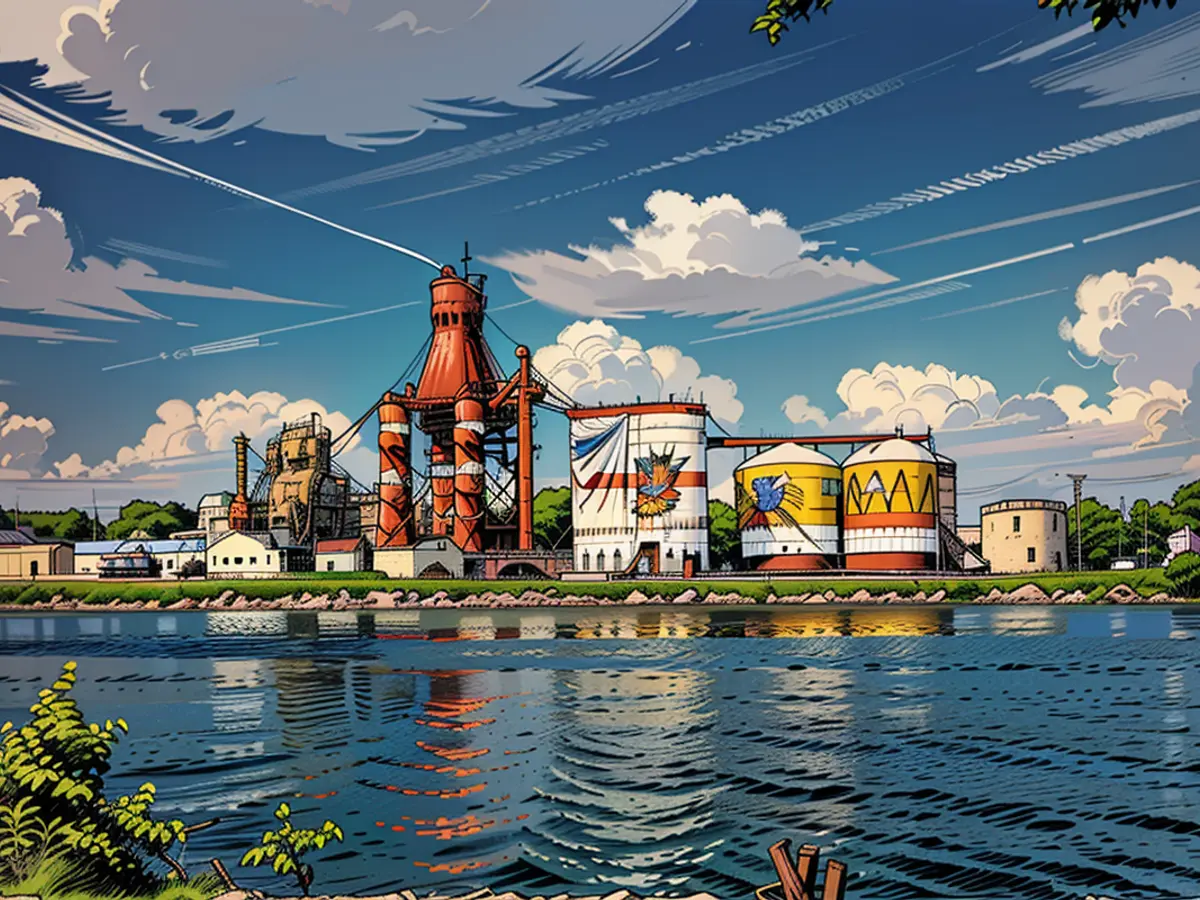
Political campaigns are now taking notice of the changes in previously overlooked regions, such as the Pennsylvania county mentioned in the article.
The tool and die maker in Erie believes that the manufacturing industry in his town has seen better days, and while he remains passionate about his trade, he is wary of the impact of outsourcing on his community.
